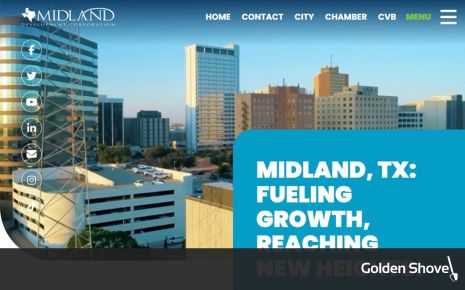Eco-Industrial Parks: A New Route Towards Sustainable Economic Development

9 Sep 2024
News, Business Attraction
Collaborative Ecosystems
As concerns over climate change and resource scarcity intensify, Eco-Industrial Parks (EIPs) are emerging as a noteworthy tool for promoting sustainable economic growth, while minimizing environmental impact. The United Nations Industrial Development Organization (UNIDO) defines an EIP as [a community of businesses located on common property, seeking enhanced environmental, economic, and social performance through collaborative resource management]. In essence, these parks represent a paradigm shift in industrial operations, emphasizing collaboration over competition in pursuit of sustainability goals.
A Compelling Option for Economic Developers
For economic developers, EIPs offer a strategic instrument for fostering economic growth and community improvement. They promote resource efficiency and circular economy practices while bridging urban areas and industrial operations. The appeal of EIPs lies in their varied benefits. By clustering industrial businesses in a dedicated location, they achieve efficiencies and collaborative opportunities that firms might not have the means to realize independently. This pooling of resources allows businesses to share both benefits and responsibilities, leading to improved environmental, economic, and social performance.
Aligning with Sustainable and Ethical Standards
EIPs align with international standards on environmental protection, employment practices, and resource management. They comply with regulations on human rights, non-discrimination, labor standards, financial disclosure, local skills development, and trade. This comprehensive approach makes EIPs attractive for communities seeking to balance industrial growth with social and environmental concerns.
Positive Impact on Local Communities
Unlike traditional industrial parks, which often concentrate negative environmental and social impacts, EIPs actively work to mitigate these issues. They improve capital efficiency, achieve utility cost savings, and generate additional revenues for enterprises. Perhaps most importantly, they promote environmentally and socially sustainable industrial development while remaining economically sound.
How Economic Developers Can Implement EIPs
Despite their potential, implementing EIPs is not without challenges. There exists a lack of clarity or consensus on EIP qualifications, which has hampered the development of truly "green" industrial sites. Additionally, building a strong business case for EIPs requires detailed technical and financial analysis. Regulatory frameworks must also evolve to match EIP ambitions.
To address these challenges, economic developers can take several key steps. Developing an institutional framework is crucial, as is relying on thorough technical and financial analysis to build a business case. Ensuring that regulations align with EIP goals is also vital. Leveraging public-private dialogue throughout the process is essential, given the wide range of collaboration required.
The World Bank Group, UNIDO, and GIZ have developed an international framework defining minimum performance parameters for EIPs, which countries can adapt to their specific needs. This framework provides a valuable starting point for economic developers looking to create truly sustainable industrial parks.
Which Communities are Best for Establishing EIPs?
Not all communities are equally suited to host EIPs. Ideal candidates typically have an existing industrial base, proactive local governments, and engaged, supportive communities. Access to natural resources, strong educational and research institutions, and potential for economic diversification are also key factors in determining a community's suitability for EIP development.
The Future of Sustainable Economic Development
EIPs foster collaboration, resource efficiency, and sustainable practices, representing a new era of economic growth and environmental sustainability. For economic developers and policymakers, EIPs present an opportunity to drive economic growth while addressing pressing environmental and social concerns. By embracing this innovative approach, communities can position themselves at the forefront of sustainable industrial development, attracting forward-thinking businesses and creating resilient local economies.
More Topics





